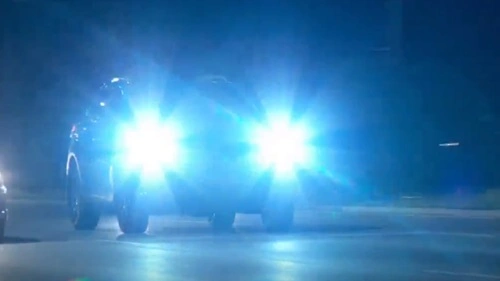Yes, in most states, it is illegal to have blue lights on your car if they are visible while driving. Blue lights are typically reserved for emergency vehicles, such as police cars, ambulances, and fire trucks, under state and federal traffic laws. Unauthorized use of blue lights can lead to fines, vehicle modifications, or even criminal charges in certain situations.
Why Are Blue Lights Restricted?
1. Reserved for Emergency Vehicles
- Blue lights are designated for emergency vehicles to signal authority and urgency. Allowing non-emergency vehicles to use them could cause confusion and pose safety risks to other drivers.
2. Impersonation of Law Enforcement
- Displaying blue lights on a non-emergency vehicle can be interpreted as impersonating law enforcement, which is a criminal offense in all states.
3. Traffic Safety Concerns
- Unauthorized blue lights can distract other drivers, potentially leading to accidents or unsafe road conditions.
State-Specific Regulations on Blue Lights
While laws vary by state, here are some general principles regarding the use of blue lights on vehicles:
1. Prohibited on Private Vehicles
- In most states, it is illegal for private vehicles to display blue lights visible from the front, sides, or rear.
- For example, states like California, Texas, and New York explicitly ban the use of blue lights on non-emergency vehicles.
2. Permitted in Specific Contexts
- Some states allow blue lights for specific non-emergency vehicles, such as snowplows, tow trucks, or funeral processions, but typically only under restricted conditions (e.g., certain weather or times of day).
3. Decorative or Off-Road Use
- In some states, blue lights may be allowed for decorative or off-road use, but they must be covered or turned off while driving on public roads.
4. Exemptions for Collectors and Display Vehicles
- Antique or collector vehicles may be permitted to use blue lights during parades or exhibitions but not during regular road use.
Consequences of Illegal Use of Blue Lights
1. Traffic Citations and Fines
Violations can result in traffic tickets, with fines ranging from $50 to $500, depending on the state and circumstances.
2. Vehicle Impoundment
Law enforcement may impound vehicles with unauthorized blue lights, especially if the lights are actively being used on public roads.
3. Criminal Charges
Using blue lights to impersonate law enforcement can lead to misdemeanor or felony charges, carrying penalties such as fines, jail time, or both.
4. Insurance and License Impact
Traffic violations involving unauthorized blue lights can affect your driving record and insurance rates.
Legal Ways to Customize Your Vehicle Lighting
1. Check State Laws
- Familiarize yourself with your state’s vehicle lighting regulations before installing any aftermarket lights.
- Many states publish vehicle modification guidelines through their Departments of Motor Vehicles (DMVs).
2. Use Approved Colors
- White or amber lights are generally permitted for most non-emergency vehicles, as they comply with federal and state lighting standards.
3. Keep Blue Lights Covered
- If blue lights are installed for off-road or decorative purposes, ensure they are covered or disabled when driving on public roads.
4. Install Legally-Compliant Accent Lighting
- LED strips or accent lights in colors other than blue (e.g., red or green) may be allowed, depending on state regulations.
Related FAQs
Q1. Can I use blue lights on my car for decoration?
Ans: Yes, in some states, blue lights may be used for decorative purposes, but they must be covered or turned off while driving on public roads.
Q2. Are blue headlights legal?
Ans: Blue-tinted headlights are typically not legal unless they meet specific brightness and color standards set by the Department of Transportation (DOT). Most factory-installed headlights appear blue but are actually within legal limits.
Q3. Can I have blue lights on my car if I am an emergency responder?
Ans: Yes, but only if you are authorized and your vehicle is registered as an emergency vehicle. State laws often regulate how and when these lights can be used.
Q4. What are the penalties for impersonating law enforcement with blue lights?
Ans: Impersonating law enforcement is a serious offense and can result in criminal charges, including fines, jail time, or both, depending on the state.
Q5. Can off-road vehicles use blue lights?
Ans: Off-road vehicles may use blue lights on private property or designated trails, but these lights must be covered or turned off on public roads.
Conclusion
Having blue lights on your car is generally illegal if they are visible on public roads, as they are reserved for emergency vehicles. Unauthorized use of blue lights can lead to legal consequences, including fines and criminal charges. To avoid potential violations, ensure that any lighting modifications to your vehicle comply with local and state laws.


